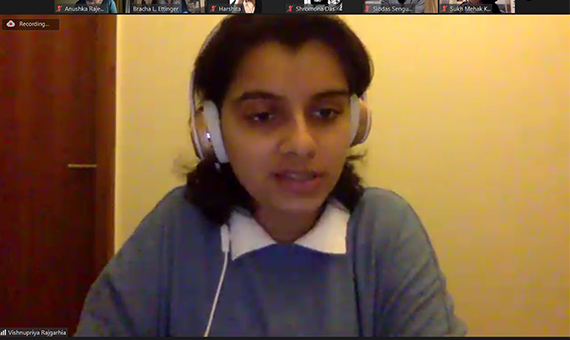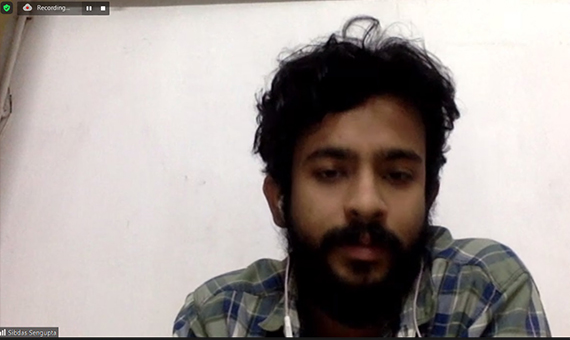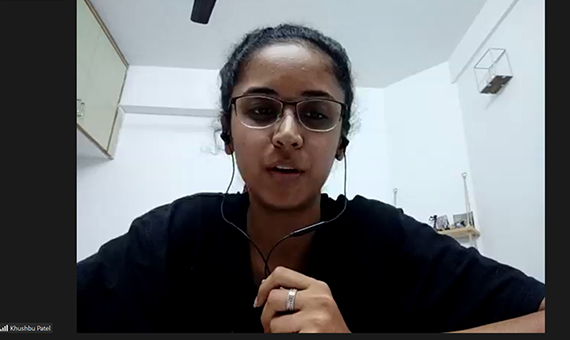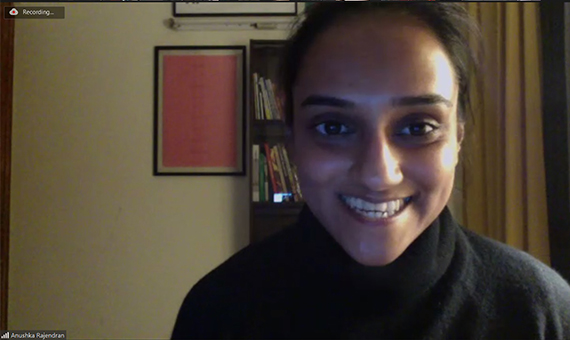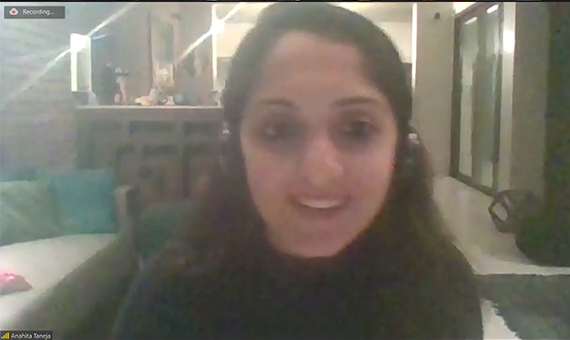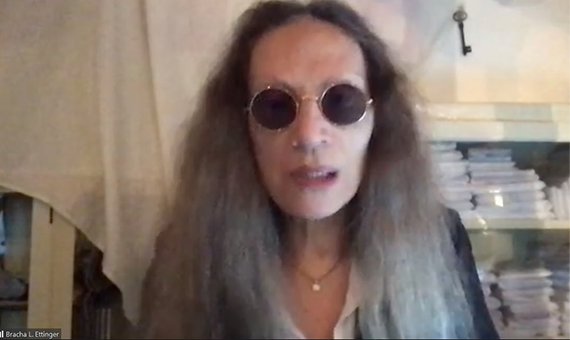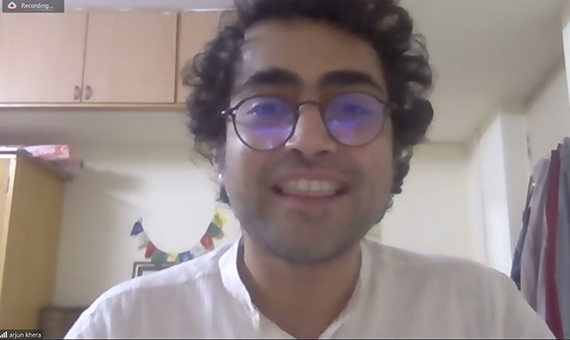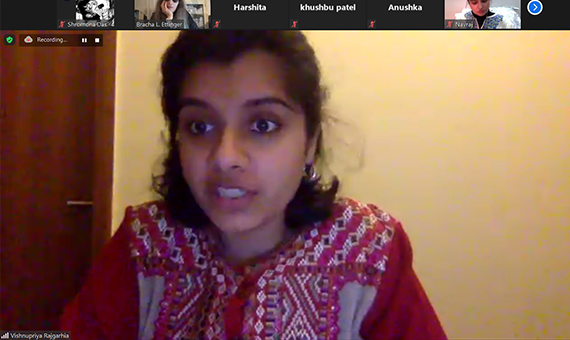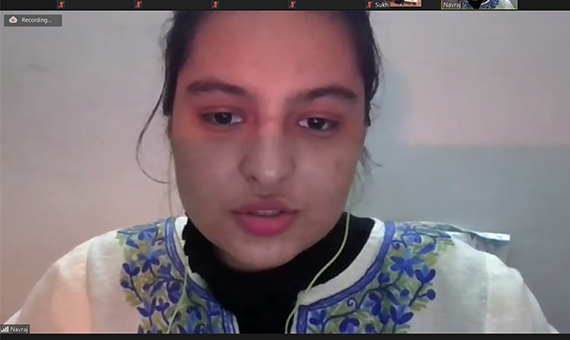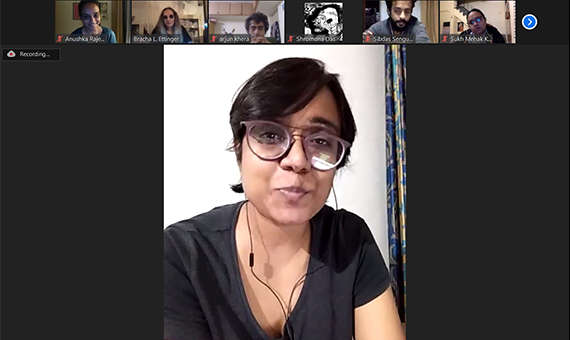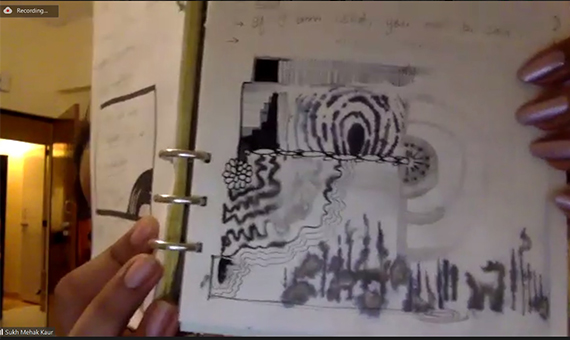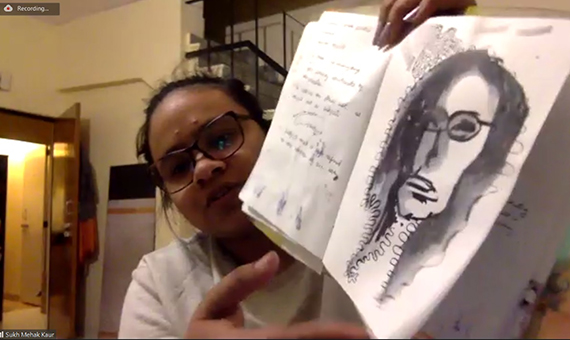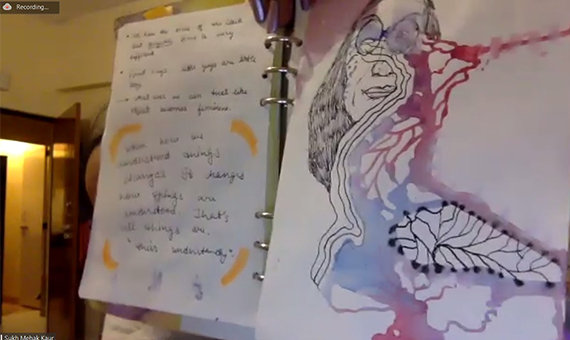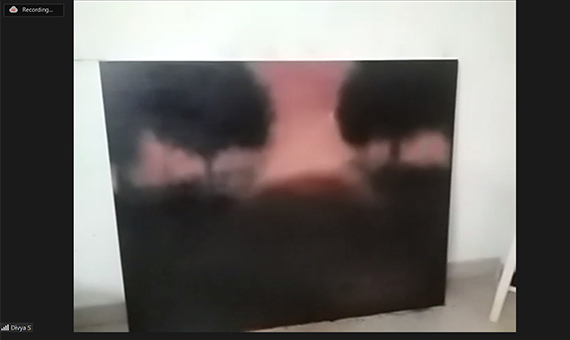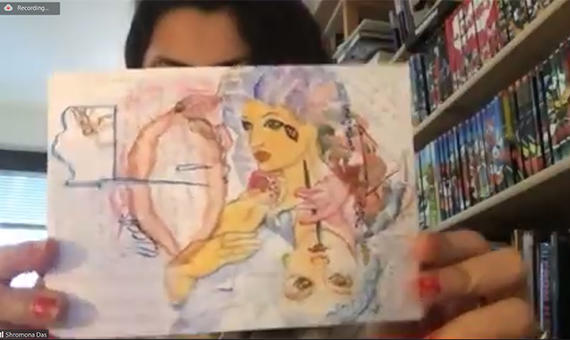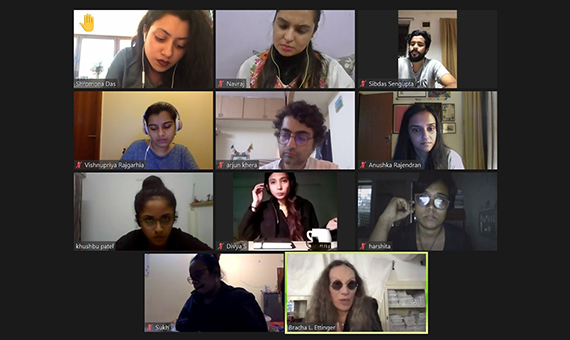About the artist
Bracha L. Ettinger (b. Tel Aviv 1948) is a prominent international visual artist, painter, feminist theorist, psychoanalyst, philosopher and creator of the matrixial theory. She coined the concepts of matrixial borderspace, time, gaze and screen, 'transubjective' jointness, 'wit(h)nessing', 'fascinance', 'copoiesis', and suggested a new definition of the human subject constituted with 'feminine transubjectivity'.
Her paintings revolve around Eros and Thanatos, mythological female figures who were mortified (Eurydice, Medusa, Ophelia, Persephone) and historical, transgenerational and personal traumas of women in times of war. The images engage with birth, female naked body and the killing of women and mothers during the World War 2 Holocaust, based on family figures' destiny in the Ponary forest and in the Stutthof Concentration Camp for Women. Her abstraction that gives form to contemplation of the unconscious, innovates a non-perspectival depth-space in relation to transparency and light with the practice of witnessing, between aesthetics and ethics. The artist is tracing paths of matrixial Eros as it cares and carries traces of trauma and conjoin their strings and threads of memory and oblivion, in the self and with others, with emphasis on a humanizing deceleration of time, affect and intimate, non-monumental scales. In her recent series (Eurydice—Pietà, Eros—Pietà, Medusa) the images encompass her further research on wound and healing, compassion and light, human vulnerability, anxiety, wonder and awe, and the relations between the feminine spirit in mythology (Isis) and in the Cosmos in relation to the psychic future time. For the last five years the artist has been working on a series of oil-paintings, Kaddish - Pietà (not exhibited yet) that revolves around fire and water, mother and child, female body and sea-shells, in relation to the irruption of her own shell-shock and memory of wounds in war time in 1967, when she led a major rescue operation of more than 150 wounded people from a shipwreck. Parallel to painting, Bracha has developed in the last 40 years her art project of notebooks, where images and fragmentary daily thoughts are drafted. The notebooks substantiate the grains of her theoretical ideas in progress.
Exhibitions: Bracha L. Ettinger participates now in Espressioni: the Proposition at Castello di Rivoli, Turin 2020-2021, and will have in the frame of this project a solo show in 2021, and in Psychic Wounds, The Warehouse, Dallas. She had solo presentations at the Kochi-Muziris Biennale 2018 and the Istanbul Biennial 2015, and solo-shows at Silesian Museum, Katowice 2017; Tàpies Foundation, Barcelona 2010; Freud Museum, London 2009; Palais des Beaux-Arts, Brussels, 2000; Israel Museum, Jerusalem, 1995; MoMA, Oxford, 1993 and more. Ettinger exhibited at ELLE in Centre Pompidou, Paris 2010-2011; Face à l'Histoire, Centre Pompidou, Paris 1996; Inside the Visible, ICA, Boston 1996 and Whitechapel, London 1997; Archive, Stedelijk Museum, Amsterdam 1997, and more.
Monographs include: Art as Compassion. Bracha L. Ettinger. Eds C. de Zegher and G. Pollock. Texts by Christine Buci-Glucksmann, Judith Butler, Rosi Huhn, Erin Manning, Griselda Pollock, Catherine de Zegher. (2011). Kabinet Ω: Bracha L. Ettinger. Ed. Viktor Mazin. Texts by: N. Bourriaud, C. Buci-Glucksmann, J. Butler, Jean-Francois Lyotard, V. Mazin, G.Pollock, Olesya Turkina. (2013) (English and Russian). Bracha L. Ettinger. Eurydyka—Pieta / Eurydice—Pieta. Ed. Anna Chromik. Muzeum Śląskie, Katowich. Texts by Alicja Knast, Andrzej Kowalczyk, Anna Chromic, Michal Krzykawski & Ewa Macura-Nnamdi, Griselda Pollock, Nicolas Bourriaud, Bracha L. Ettinger. (2017) (Polish, English and French).
The artist's wide-ranging artworks and her pioneering theoretical writings have strongly influenced art theory, feminism, cultural studies, philosophy and psychoanalysis in the last 30 years. Her books include: The Matrixial Borderspace (2006) and And My Heart Wound-Space (2015). Her most recent book is: Bracha L. Ettinger, Matrixial Subjectivity, Aesthetics, Ethics, Vol I: 1990-2000 (2020), edited by Griselda Pollock. Vol II: 2000-2010 (2021), currently in print.
B.L. Ettinger, PhD, is a trained psychoanalyst; member of TAICP; member of NLS; member of WAP; Chair & Professor of Art and Psychoanalysis, EGS; and Distinguished Professor of Philosophy, GCAS..

